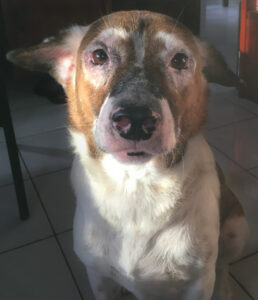Cold agglutinin disease is the witch of our personal ‘Wizard of Oz’
A columnist compares her rare condition to Dorothy's famous journey
Written by |

“Toto, I have a feeling we’re not in Kansas anymore.”
Dorothy Gale in L. Frank Baum’s “The Wonderful Wizard of Oz” was quite disoriented when a tornado whisked her and her dog, Toto, out of their home in Kansas. Everything was different, and she had to find her way back home.
We “CADdies,” as those of us with cold agglutinin disease (CAD) call ourselves, find that we’re in a whirlwind of confusion and face a lack of understanding as the disease develops. Then we’re plunked down in an Oz that looks as if we’re healthy, but things don’t always work as expected.
We’re off to see the wizard
CAD is a rare blood disease characterized by having fewer red blood cells (RBCs) than a healthy adult has. This makes us anemic and fatigued. Other symptoms include pain in the joints, chest, back, or legs, as well as headaches and dizziness. We spend our lives trying to return to Kansas, where life is normal.
Many days I wake up disoriented because of CAD. I remain in bed taking deep breaths. After a few minutes, I get up and move slowly. These are my first steps along a yellow brick road to encourage more oxygen to flow to my brain.
Cast of characters
I envision CAD as my personal Wicked Witch, trying to use my own antibodies to destroy my RBCs and cause problems. She is ever-present and appears when I least expect it. I must be vigilant to stay warm and avoid contagions.
The good news is the gift of travel companions along the way. There’s the Tin Man, whose real heart is composed of the friends and family who take us to doctor appointments, accompany us to infusions, and make allowances for our fatigue.
As we travel our yellow brick roads, we also have our medical team, which fulfills the part of the wise and knowledgeable Scarecrow. Our teams help us regain our health and keep us on the path of healing.
Not to be forgotten is the courage we have. We often want to just quit dealing with it, but like the Cowardly Lion, we keep going. At the beginning of summer, for instance, I apparently tore the meniscus in my right knee and have a lot of associated pain. It took a bit of courage to go to the doctor and have it checked out. While CAD didn’t cause the injury, it’s making the joint pain worse.
There are also many Munchkins inhabiting my world as well. These are people I interact with as I go shopping, to a basketball game, or elsewhere. They see that I’m different in some way and ask me what’s going on. I reply with a short, two-minute explanation of CAD and how it affects me.
I can see other symbols of Oz in my CAD story. There are the witch’s Flying Monkeys, which may represent those who suggest things that aren’t beneficial to us, such as taking iron supplements (which usually aren’t necessary and might even be dangerous), getting more exercise than we’re able to, and attempting to go out in weather that’s too cold for us. I firmly tell these monkeys, “Thank you, but I cannot.”
Getting to the Emerald City and back to Kansas
Today, I have a list of items I should accomplish. My list is the figurative Emerald City off in the distance. Yet there’s a poppy field of fatigue preventing me from checking all the items. Where is Glenda, the Good Witch, to make it snow when you need her?
Unlike Dorothy, we CADdies cannot click our heels and return to a life of “normalcy.” With our diagnoses, our worlds have changed forever. We remain in Oz, feeling like Dorothy when the Wizard sailed off to Kansas without her. But who knows? Glenda may yet manifest through research in the future, pointing the way to recovery from this disease.
Note: Cold Agglutinin Disease News is strictly a news and information website about the disease. It does not provide medical advice, diagnosis, or treatment. This content is not intended to be a substitute for professional medical advice, diagnosis, or treatment. Always seek the advice of your physician or other qualified health provider with any questions you may have regarding a medical condition. Never disregard professional medical advice or delay in seeking it because of something you have read on this website. The opinions expressed in this column are not those of Cold Agglutinin Disease News or its parent company, Bionews, and are intended to spark discussion about issues pertaining to cold agglutinin disease.








Leave a comment
Fill in the required fields to post. Your email address will not be published.